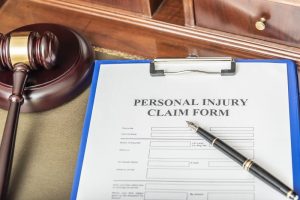When you’re dealing with the aftermath of a serious accident, every decision can feel overwhelming, especially if you wish to pursue justice and compensation through a personal injury claim. A free case evaluation with a personal injury attorney is a critical first step that can set the tone for the entire legal process. This meeting allows you to get a professional assessment of your case, learn about potential compensation, and understand the next steps. However, arriving prepared will make a significant difference in the effectiveness of this consultation.
Whether you’re from Boynton Beach, West Palm Beach, Deerfield Beach, or another part of South Florida, knowing what to bring can help you and your attorney make the most of this valuable meeting. Here’s a comprehensive guide on what you should bring to a free case evaluation with an injury lawyer to ensure a smooth, productive session.
Why a Free Case Evaluation Matters
A case evaluation is more than just a chance to meet your attorney; it’s a vital opportunity to explore your legal options, establish a pathway to compensation, and discuss any obstacles. During this meeting, your attorney will assess the facts of your case, the evidence available, and the strength of your claims.
The consultation is also an ideal time to learn more about how South Florida’s modified comparative negligence law may apply to your situation. Here, even if you bear partial fault for the accident, you may still be eligible for compensation proportional to the other party’s fault. Coming prepared with the right documents will allow your attorney to gauge the likelihood of success, potential hurdles, and possible financial recovery.
Key Documents to Bring
Bringing specific records will help your attorney quickly understand the details of your case and build a strong foundation for pursuing compensation. These documents include:
Police or Accident Report
After an accident, a police or accident report is usually generated to document essential details such as the time, date, location, and officer observations. This report can be pivotal in any case involving negligence. Whether your accident happened on I-95, near popular Boynton Beach areas, or a busy intersection in Deerfield Beach, the accident report provides an official record of circumstances. Be sure to bring a copy of this report, as it often includes preliminary conclusions about fault and statements from involved parties and witnesses.
Medical Records and Bills
Medical records and bills are some of the most crucial evidence in a personal injury case. They provide proof of your injuries, treatments, medical costs, and the prognosis for your recovery. Gathering records from hospitals like Bethesda Hospital West or JFK Medical Center can help your attorney understand the severity of your injuries. Be sure to include records from all medical providers, including emergency care, follow-up visits, and any specialists you may have seen.
Your attorney can also use these records to estimate future medical costs, which may be crucial for calculating compensation if your injuries require long-term treatment or rehabilitation.
Insurance Information
To properly assess your case, you must bring any insurance information relevant to your injury claim, such as your own health insurance, auto insurance, or any policy under which you may be covered. In Florida, personal injury claims often involve scouring complex insurance policies and dealing with adjusters who may try to minimize liability.
If you’ve communicated with insurance representatives, bring copies of all correspondence, whether from an email exchange or letters outlining claim details.
Photos or Videos of the Accident Scene
Visual evidence can be a powerful tool in personal injury cases. Photos or videos from the accident scene provide crucial details that words alone may fail to capture, such as road conditions, weather, lighting, or property damage. If your accident happened in a public area near landmarks like Boynton Beach’s Oceanfront Park or West Palm Beach’s Clematis Street, photos of the scene can contextualize the situation for your attorney.
If you’ve taken pictures of your injuries, vehicle damage, or other relevant factors, bring these as well. This evidence can strengthen your claim and clarify aspects of the incident for both your attorney and the court.
Witness Information
Witness statements can add significant weight to your case by providing an unbiased account of the accident. If anyone witnessed your injury—whether it’s a friend, coworker, or a passerby who saw the accident—bring their contact information to your evaluation. Statements from witnesses can corroborate your story, adding credibility and helping to counter any false claims the other party may raise.
Financial and Employment Records
To accurately assess how your injury has impacted your financial well-being, it’s important to bring relevant employment and financial records. These documents will help your attorney calculate lost wages, potential future losses, and other financial setbacks related to your case. These documents include:
Proof of Income or Employment
Lost income is often part of personal injury claims, as injuries can disrupt your ability to work or reduce your earning capacity. To support claims of income loss, bring recent pay stubs, tax returns, or any documents proving your income before the accident. Whether you work in downtown Fort Lauderdale, Delray Beach, or Boynton Beach, these records allow your attorney to calculate lost wages accurately and assess potential future income losses.
Details of Job Duties
If your injuries impact your work capabilities, it’s helpful to bring a description of your job duties. For example, if your job in Boca Raton requires lifting heavy materials, and your injury prevents you from performing these tasks, a job description could provide context to strengthen your claim for lost earning capacity or the need for a different line of work.
Other Financial Documentation
Financial records showing the toll of your injuries, such as loan statements or rent agreements, can also be useful. If you’ve experienced financial strain due to medical bills or reduced income, these records provide context on the impact of the injury beyond your physical recovery.
Documentation of Pain and Suffering
Pain and suffering can be difficult to quantify, yet they often represent a significant part of a personal injury claim. Bringing documentation that captures the emotional and physical toll of your injury can help your attorney present a full picture of the impact on your daily life.
Personal Injury Journal
Pain and suffering aren’t always easy to quantify, but they’re often a significant part of personal injury claims. Maintaining a personal injury journal can help document the emotional and physical toll your injuries have taken on you. If you’ve missed family events in places like Boca Raton’s Mizner Park, downtown Boynton Beach, or local celebrations, including these details in your journal can help paint a picture of how the injury has impacted your quality of life.
Statements from Family or Friends
If family members or friends have witnessed changes in your behavior, mood, or activity levels due to the accident, they can provide powerful testimonials. Their observations can supplement your own account, helping your attorney build a more compelling case for damages related to emotional suffering or loss of enjoyment of life.
Questions to Ask During Your Evaluation
Preparing thoughtful questions for your case evaluation can provide clarity and confidence as you consider your legal options. Asking the right questions will also give you a better understanding of the attorney’s experience, approach, and expectations for your case. Some topics to bring up with the lawyer during your free consultation include:
The Lawyer’s Experience with Similar Cases
Since personal injury cases vary widely, it’s important to inquire about the attorney’s experience with cases like yours. Whether you’ve been injured in a premises liability case at a property in West Palm Beach, a vehicle accident on US-1, or another type of accident, understanding the lawyer’s background can give you confidence in their ability to handle your unique case.
Your Case’s Potential Challenges
Every case comes with its own set of challenges, from proving fault to managing Florida’s statute of limitations. Asking about potential challenges will prepare you for any obstacles and let you understand the lawyer’s strategy for overcoming them.
The Timeline and Possible Outcomes for Your Case
Understanding how long your case may take is essential for planning your finances and personal life. Ask about the typical timeline for cases like yours and the potential outcomes so you know what to expect as your case progresses.
The Attorney’s Fee Structure and Case Costs
Although many personal injury attorneys operate on a contingency basis, it’s still wise to ask about fees and case costs. Clarifying any expenses upfront will help avoid surprises down the road and let you budget for any necessary expenses along the way.
Specific Items to Bring if You Are Involved in a Motor Vehicle Accident
If your case involves a vehicle accident, additional documents related to the incident can be crucial in establishing liability and calculating damages. These items will help your attorney understand the specifics of the accident and strengthen your case for compensation.
Repair Bills and Estimates
Vehicle accident claims often involve property damage, so if your car was damaged in the collision, bring repair bills and estimates. These documents will help your attorney determine the extent of your losses beyond medical bills and lost income.
Traffic Citations
If you were issued a traffic citation at the scene, this could impact how fault is assigned in your case. Bring any citations related to the accident so your attorney can address these issues as part of your claim.
Dashcam or Surveillance Footage
Dashcam footage or surveillance videos, particularly from intersections or busy areas like Atlantic Avenue, can be valuable evidence. If your accident happened in a high-traffic area or near local shops and restaurants, such footage could help reconstruct the incident and establish liability.
Additional Preparation Tips
Taking a few extra steps to organize your materials and thoughts before the evaluation can make the meeting even more productive. These simple preparation tips will help ensure you cover all necessary details and get the most out of your consultation.
Organize Documents in a Folder or Digital Format
Arriving with documents organized in a folder or digital file will make it easier for both you and the attorney to locate relevant information. This level of preparation demonstrates that you’re committed to your case and enables the attorney to conduct a thorough assessment.
Prepare a List of Questions and Key Points
Make a list of questions you’d like to ask during the evaluation and any key points you want to discuss. This will help you cover all concerns without forgetting important details during the consultation.
Be Aware of the Deadline for Filing a Personal Injury Claim in Florida
In Florida, personal injury claims are subject to strict time limits known as statutes of limitations, which set deadlines for filing a lawsuit after an accident. For most personal injury cases, including car accidents and slip-and-fall incidents, you have two years from the date of the injury to file a claim.
However, there are exceptions and variations for certain types of cases. For instance, wrongful death and medical malpractice claims also have a two-year statute of limitations, but these timelines can be affected by specific factors, such as when the injury was discovered.
Failing to file within the designated period usually means forfeiting your right to seek compensation. In complex cases or those with delayed symptoms, it’s especially important to consult an attorney promptly to avoid missing critical deadlines.
An attorney can help determine the correct timeframe for your case, ensuring all paperwork is submitted on time. Understanding and adhering to Florida’s statute of limitations is crucial to preserving your right to recover damages.
Schedule Your Free Case Evaluation Today
Taking the time to prepare for your free case evaluation can make all the difference in your pursuit of compensation. From gathering essential documents to asking the right questions, being organized can ensure your case gets the thorough evaluation it deserves.
For South Florida residents, whether you’re in Boca Raton, Boynton Beach, or West Palm Beach, our team at Frankl Kominsky Injury Lawyers can help you seek justice through a personal injury claim.
Contact our personal injury lawyers today at (561) 800-8000 or through our online form for a free consultation, and let us guide you in seeking the compensation you deserve. We’re proud to serve our diverse South Florida community, offering legal assistance in Spanish and Creole as well.
 South Florida Injury Attorneys Blog
South Florida Injury Attorneys Blog




